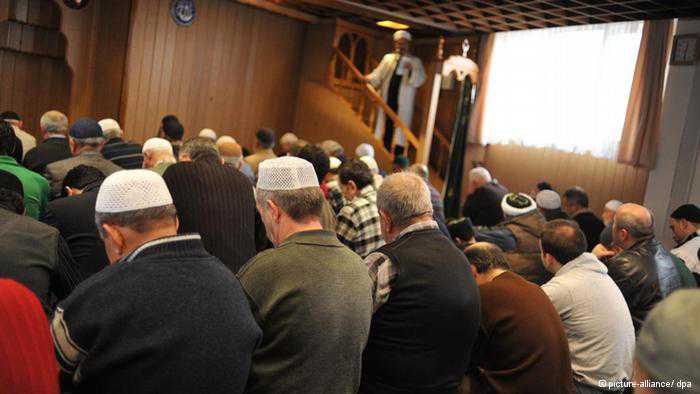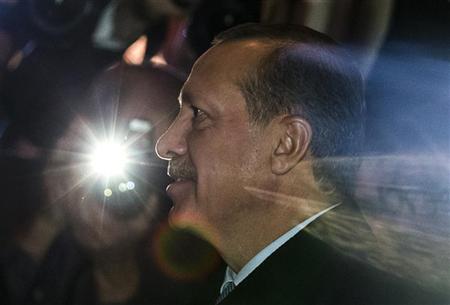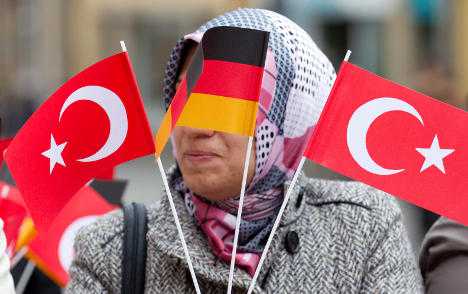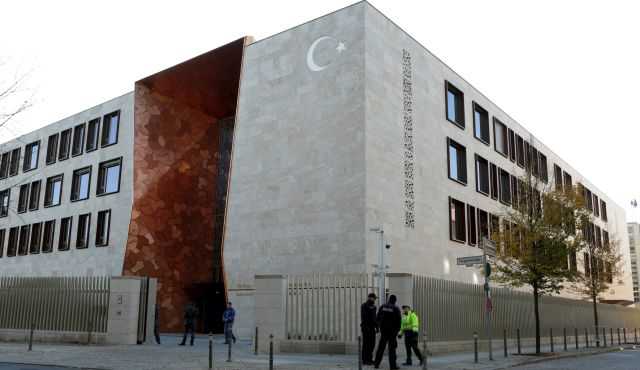Just how satisfied are Turks with their life in Germany? A recent poll shows that many want to go Turkey, and some are toying with radical interpretations of religion.

“We were surprised about the results,” said Holger Liljeberg from the INFO polling institute.
The institute conducted a representative survey on the satisfaction with life amongst Turks in Germany and found that an increasing number of Turks intend to leave Germany and go back to Turkey.
Liljeberg said he found it surprising that this intention was particularly widespread in the group of 30 to 49-year-olds, with every second participant voicing this plan. The researchers concluded that Turks in Germany still consider Turkey their real home – a tendency that seems to be on the rise again, in comparison to answers given in past surveys. The most recent study polled 1,000 Turks living in Germany.
In the youngest group surveyed, those between the ages of 15 and 24, some 20 percent of participants said they wanted to find a job in Turkey. “We are risking a brain drain of skilled Turks,” Liljeberg said. But he said their motivation was understandable. On the one hand, the pressure on the Turkish community in Germany is growing, while at the same time Turkey has become more attractive. German media have come to call the country the “powerhouse on the Bosporus.”
“With a good level of education, they can easily earn 10,000 euros a month or more in Istanbul,” said Liljeberg.
Barbara John: “Don’t blow study results out of proportion”
Roughly 53 percent of all participants said they expected better job opportunities in Turkey. This development is worrying for the German economy, which is already experiencing a lack of skilled labor. But Barbara John, former commissioner for foreigners in Berlin, warned of jumping to conclusions. If you asked young Germans the same question, she said, an equally high share would probably say they were planning to go abroad.
Radical opinions among young people
A second area of study also triggered mixed interpretations. The share of young people who consider themselves “strictly religious” or “rather religious” has risen to two thirds in comparison to the last study conducted in 2010. Liljeberg pointed out that this doesn’t mean praying or attendance at religious services was on the rise.
“But Islam is gaining in significance as a means of identification amongst young people who feel like they’re living between two worlds,” Liljeberg said, adding that the difficult situation arises from the fact that young people born in Germany are seen as Turks in Germany and as Germans in Turkey.
Young Turks approve of free Koran distribution campaigns
“Young people risk being religiously politicized,” the researcher said summarizing the survey’s results. The participants were asked about their opinion regarding the free distribution of copies of the Koran in pedestrian by Salafists, who have the status of extreme Islamists in Germany. The campaign launched a big debate this year, but among young Turkish survey participants, there was a high degree of approval, with 63 percent of 15 to 29-year-olds saying it was a good campaign. The vast majority of over 50 said they disapproved of the campaign.
Danger of radicalization?
John said this was not proof that young Turks were heading towards radicalization, but it simply highlighted young people’s search for identity.
“Dissociating yourself from the majority is normal, and strict religious lifestyles often look like the best possible way to do so,” she said.
But Liljeberg considered it a “gateway to a politization which could lead to group building.” In the survey, 36 percent of young people said they were willing to support the Salafist campaign financially with donations.
A vast majority of Turks say German language skills are crucial
Another finding of the survey was the growing tendency amongst citizens of Turkish origin to dissociate from German society. About 62 percent of study participants said they preferred the company of other Turks only – up from the 40 percent who gave the answer in 2010. Almost half the participants said they hoped there would be more Muslims than Christians in Germany in the future. Two years ago, this number was lower, too, with only one third voicing this view. Worryingly, the study also found that religious resentment was growing, towards atheists and Jews in particular.
dw.de
Hamburg to guarantee more rights to Muslims
Hamburg wants to make an agreement with Muslims and Alevi cementing their rights and responsibilities. It would be the first such pact to be undertaken by a German state. (16.08.2012)
My first day in ‘Almanya’
“Recognize Islam”
John said these were normal results. She said what was emerging in Germany was not a counter-culture, but a pluralist society. No one should expect Turkish immigrants to have assimilated completely after only a few decades, she added. But it was important that Germany officially recognize Islam.
“If that were the case many Turks wouldn’t feel pushed aside because their religion would be considered normal,” she said.
Hamburg, this week, became the first federal state to launch such an initiative. It plans to sign an agreement with Muslim communities.
Another finding of the study showed that integration efforts have to be continued. While many Turks leave or plan to leave Germany, the number of those moving to Germany is also still high – albeit no longer for economic reasons as in previous decades. About 56 percent of women are coming to Germany because their husbands live here. This shows that there is no such thing as “the Turks in Germany” – even if many Germans still see people of Turkish descent as a homogenous group.
But some of the efforts of integration policy of the last few years seem to have paid off. The study noticed progress in some areas, such as language skills and participation in social life. All in all, 91 percent of participants thought it was important for children to learn German straight away. When it came to the role of women, participants’ opinions were also more moderate.






